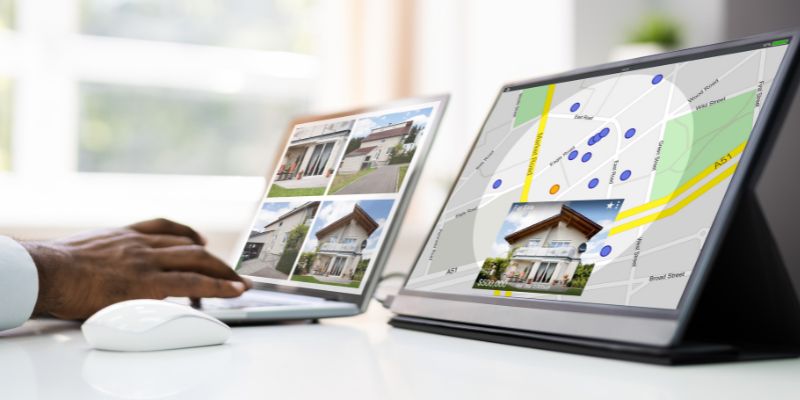Every company needs a database of current or potential clients — and real estate brokerage is no different. Databases help you nurture new business and extract repeat business and referrals from your old clients — generating more sales and profit for your agency.
What is a Real Estate Database?

As a real estate agent, your database is simply a list of:
- Clients who have worked with you in the past; and
- Prospective clients who might work with you in the future.
Any lead can go into your real estate client database, but the most valuable leads are the ones that regularly communicate with you and respond to your outreach. These are the most important leads to nurture through relationship-building.
A real estate database can be a simple spreadsheet — Microsoft Excel, Apple Numbers, Google Sheets, etc.
Agencies with a larger and more complicated client base might want to use a customer relationship management (CRM) software platform — a type of database software designed specifically (as the name implies) to manage customer relationships, including lead nurturing, follow-up, and transaction tracking.
Why Build a Real Estate Database?
Real estate client databases can help you produce many revenue-driving outcomes for your brokerage, including:
- Identify new opportunities for sales from both your past and prospective clients, as well as their referrals.
- Build a loyal customer base through solid relationships so your leads think of you first for their real estate needs.
- Get a better ROI from your marketing since a good client database prevents you from losing leads you spent good money acquiring.
What Data Should a Real Estate Database Contain?

In addition to basic details of the lead, client, or prospect — name, phone number, email, other contact info, etc. — the database can contain any other information that might help you build a relationship with the leads in your database. Remember, without the relationship, the data in your database is useless. Relationships turn leads into sales.
Client-specific data that could help you build the relationship and identify opportunities to do business include the client’s.
- Age
- Family
- Hobbies
- Values
- Important life milestones (birth of a child, wedding, new business venture, etc.)
- Sectors or asset classes of interest
- Budget
- Net worth and access to credit
- How soon they want to transact
- Preferred mode of contact.
How Do I Organize My Real Estate Database?
The most important organization priority for your real estate database is to tag your leads — that is, assign their qualities so that you can easily sort them by demographic.
For example, with a click of a button, you want to be able to see only the leads that have already done business with you or only the leads that you are still nurturing towards the first sale.
Other characteristics by which you could segment your list include:
- Areas of interest and budget: If a deal comes up, you want to be able to quickly access every lead who expressed interest in that kind of deal and qualifies for it so you can blast out the details to them.
- “Temperature” of the lead: You want to be able to quickly sort the leads who want to buy within the next few weeks or months from the leads that may be years away from a transaction. These lead “temperatures” (hot, warm, cold, etc.) require very different approaches.
How Often Should I Contact my Leads?

How often you contact your leads depends on the aforementioned “temperature” of the leads — hot, warm, or cold. Here are some “go-to” rules for temperature-based touch frequency.
- Hot Leads — Wants to transact within 60 days or less. Contact three times a week.
- Warm Leads — Wants to transact within 60-120 days or less. Contact once a week.
- Cold Leads — Wants to transact within 4-6 months or longer. Contact once every two weeks. Ask for referrals from your past clients and be conscious of when they might be on the market again so you can raise the lead temperature in your database.
How Do I Build Relationships with my Quality Leads?
Reaching out with a generic message is better than nothing, but you will make more sales from your database if you build relationships with the leads. You want them to know, like, and trust you, not just know you.
What kind of outreach builds trust and positive associations? Examples include:
- Targeted market updates: Don’t just blast out generic data. Instead, target your information to the leads most interested in that kind of transaction.
- Fast alerts about new deals: Make sure to target the deal to leads that are interested in and qualified for that specific deal.
- Updates of deals in progress: Let your leads behind the curtain on your deals in action so they have a chance to witness your competence and knowledge.
- Personalized videos: If possible, shoot a “selfie” video message where you address the client by name. This takes time, but it is one of the most powerful ways to nurture a client relationship.


















